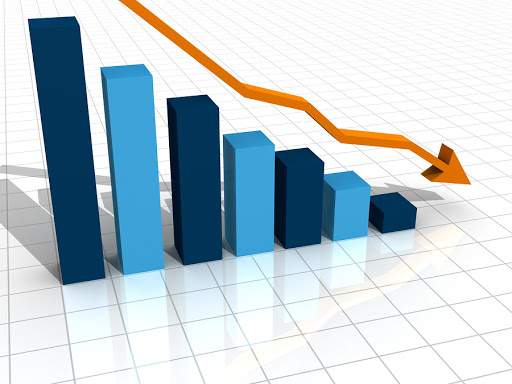The interest rate at which banks lend to individuals and the private sector declined marginally between August 2019 and August 2020, according to latest data by the Bank of Ghana. Within the period, average lending rates dropped from 24 percent to 21.4 percent.
Speaking at the 96th MPC press conference, the Governor of the Bank of Ghana, Dr. Ernest Addison, said the drop in interest rates could be attributed to the reduction of the monetary policy rate from 16 percent to 14.5 percent.
“The downward adjustment of the monetary policy rate impacted the weighted average interbank lending rate, which declined to 13.6 percent in August 2020 from 15.2 percent in August 2019. Average lending rates of banks have steadily declined to 21.4 percent from 24.0 percent over the same comparative period”.
He said, although, a survey carried out in August 2020 depicted a net tightening in the overall credit stance on loans to enterprises, as result of a boost in economic activities and the optimism that there will be a spontaneous demand for credit by households and firms, banks have suggested a net easing of loans given out to enterprises in the months ahead.
“Cumulatively, from the beginning of the year to August 2020, new advances have totalled GH¢20.9 billion, compared with GH¢15.8 billion for the same period of last year”.

The committee’s report also said that the banking sector is doing very well. It said that its deductions from the Financial Soundness Indicators and the Banking Sector Stability Index show that the sector is resilient and that banks are properly resourced to deal with short-term liquidity pressures as well as any potential worsening of the economic situation.
“The banking sector remains liquid, well capitalised, and well-positioned to support growth.”
The Monetary Policy Committee of the Bank of Ghana further asserted that the banking sector continues to remain profitable as Non-Performing loans (NPL) have slightly declined. More so, the statement revealed that the banking industry has not shifted its operational costs to its consumers in the form of higher interest margins.
“The recent survey results revealed that while the pandemic has increased the industry’s cost of operations, banks have not passed on the associated costs to consumers through higher interest margins.”
The statement went on to say that despite contractions experienced in the second quarter of the year, there are signs of recuperation in economic activities. The MPC said that information from surveys conducted by the Bank of Ghana pointed to an improvement in both consumer and business confidence asserting that improved macroeconomic conditions, exchange stability and moderation of lending rates had resulted in strong optimism among majority of businesses.
“Consumer confidence is bouncing back strongly and is currently above pre-lockdown levels.”
The committee finally came to the conclusion that the corrective policies introduced by the Bank of Ghana have gone a long way to improve the economic situation of the country.
“Relief measures introduced by the Bank of Ghana have enhanced liquidity in the banking system, preserved capital buffers, and provided relief to customers severely impacted by the pandemic.”
It further said that these measures had enabled banks and other financial institutions to provide support to various important economic sectors and that the Bank of Ghana would continue to measure the impacts of these relief provisions on the overall economy.





















